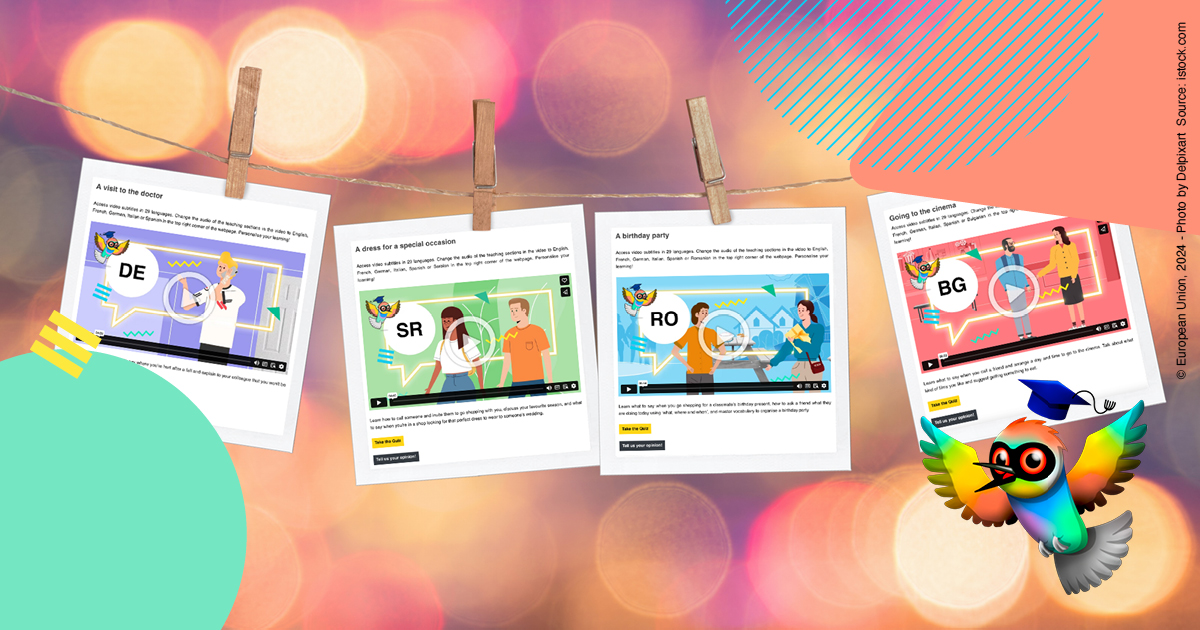We’re excited to present our three new ‘language basics’ videos for each of the 29 OLS languages. There are now five in total. An easy way to find them is by searching for ‘basics’ in the OLS search field, e.g. ‘Bulgarian basics with OLS’.

In keeping with the spirit of this month’s environmental days, here are three new courses to help mobility participants expand their ‘green’ awareness and vocabulary:
A2: Can you fix my hairdryer?: Students learn to describe a problem with an appliance, and talk about how to fix it – instead of buying a new one. Available in 29 OLS languages, including Romanian.
B1: Zero waste: can we do it? Defend the circular economy and learn to convince a friend or flatmates to try waste sorting. Available for English, French, German, Italian and Spanish.
B2: What if we changed our way of consuming? Students will learn to motivate their flatmates to stop over-consumption by not buying anything new (except food and a few other essentials) for three months. Available for English, French, German, Italian and Spanish.